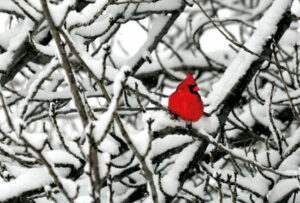In the fifth of our series of funny-serious poems, Matthew Paul, Charlotte Gann and Rory Waterman choose poems by Geoff Hattersley, Kathy Pimlott and Wendy Cope
Matthew Paul chose ‘On the Buses with Dostoyevsky’ by Geoff Hattersley. Matthew says, “The title alone is priceless in how it implicitly unites the grotesque characters – the Hitler-resembling Blakey, Olive, Stan and cackling Jack – of a dire 1970s sitcom with the complex ones in some of the richest novels ever written about the human condition. But before Hattersley itemises other hilariously bizarre mash-ups, he starts this deceptively lean poem as he ends it, on a darker note, addressing the impacts of industrial decline and injury. The learner-driver simile is as unsettling as it is comical. In his light but highly-skilled manner, Hattersley shows that the comedy of everyday life is a serious business.”
On the Buses with Dostoyevsky
Because of the steelworks
that deafened my dad
our telly was always
too loud, so loud
it formed a second narrative
to what I was reading
up in my room
in my late teens – I’d have
Hemingway and Kojak,
Alias Smith and Jones and Poe.
All that noise! Car chases
and gunshots, sirens, screams,
horse racing and boxing,
adverts for fishfingers,
floor cleaner and fresh breath;
and Knut Hamsun starving,
Ahab chasing his whale.
I felt like a learner driver
stalled at a traffic light,
a line of lorries behind me.
Because of the steelworks
that closed in 1970
and which I never saw
except as a skeleton,
I like silence and calm,
I like silence and smoke
cigarettes in the dark.
‘On the Buses with Dostoyevsky’ is available in Back of Beyond: New and Selected Poems (Smith|Doorstop, 2006)
Charlotte Gann chose ‘After the Fall’ from Kathy Pimlott’s debut collection the small manoeuvres (Verve, 2022). Charlotte says, “I like small, sad, funny, durable poems I can fall in love with on meeting. I like poems that work literally and metaphorically. This is a recent example of all of the above. It seems to me immaculate. I love the careful order in which information is delivered. I like the line “though only five, I pause to consider” – the character portrait captured here. The understated yet careful accuracy. I’m moved by it – I recognise myself here, as well as the poet. And yes, it’s funny. That wonderful human bridge of humour. The picture painted in my head by the end of that small figure (absurdly) waiting.”
After the Fall
So when a manhole cover flips,
drops me down, scraped and shaken,
though only five, I pause to consider
if now is a suitable time to shout Help!
like in the stories, attract attention
by waving my red cardy or whether
that would be showing off and
I should stand quietly in the drain
until someone notices I’m gone.
Rory Waterman chose ‘Differences of Opinion’, Wendy Cope’s two-part poem first published by Poetry Magazine in 2006.
Differences of Opinion
1.
HE TELLS HER
He tells her that the earth is flat —
He knows the facts, and that is that.
In altercations fierce and long
She tries her best to prove him wrong.
But he has learned to argue well.
He calls her arguments unsound
And often asks her not to yell.
She cannot win. He stands his ground.
The planet goes on being round.
2.
YOUR MOTHER KNOWS
Your mother knows the earth’s a plane
And, challenged, sheds a martyr’s tear.
God give her strength to bear this pain –
A child who says the world’s a sphere!
Challenged, she sheds a martyr’s tear.
It’s bad to make your mother cry
By telling her the world’s a sphere.
It’s very bad to tell a lie.
It’s bad to make your mother cry.
It’s bad to think your mother odd.
It’s very bad to tell a lie.
All this has been ordained by God.
It’s bad to think your mother odd.
The world is round. That’s also true.
All this has been ordained by God.
It’s hard to see what you can do.
Rory says, “I don’t have a favourite funny poem, though the many ‘funny poems’ I love are being something else as well, and often make me uncomfortable, or otherwise move me. Wendy Cope doesn’t like being regarded as a writer of light verse, a term she loathes. For one thing, most of her poems have no comedic intent. For another, those that do are rarely content only with being light, and ‘light’ is not always the synonym for ‘funny’ that most people take it to be. She can be a very angry funny poet, a sad funny poet, a moving funny poet. This two-part poem is all of those things, I think.
“The first, shorter part is perfectly witty, deriding a man who assumes he knows best. As a man who has written a book on her poetry (Wendy Cope, published by Liverpool University Press in 2021), I probably should’ve pinned those eight lines above my desk when I set forth on that journey – but I didn’t, and of course what I have written is definitive. The second part, a pantoum, isn’t funny at all: the first sets us up for something we don’t get, and the smile drops. The poem makes us want to reverse its one-way communication and reach inside, to tell the speaker she is not wrong for being right. Taken as a whole, the poem does not take us where we thought we initially were going, and in that sense it exemplifies the ‘funny poems’ I tend to like most of all.”
Read ‘Differences of Opinion’ by Wendy Cope at The Poetry Foundation

